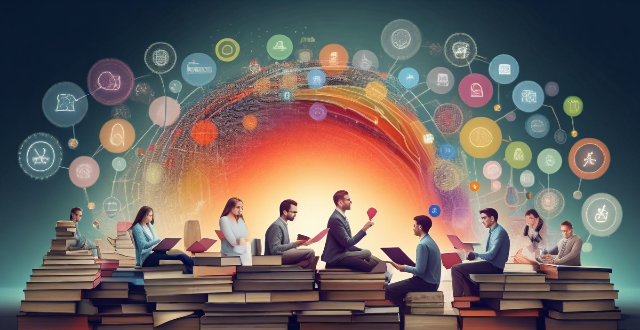Lifelong learning is the continuous process of acquiring new knowledge, skills, and attitudes throughout one's life. It is important for personal development, professional growth, social contribution, economic benefits, health and well-being, and global citizenship. To embrace lifelong learning, individuals can set learning goals, create a learning plan, seek out opportunities, stay curious, reflect on their learning, and share their knowledge with others.

What is Lifelong Learning?
Lifelong learning is the continuous process of acquiring new knowledge, skills, and attitudes throughout one's life. It involves a commitment to learning that goes beyond traditional educational settings and extends into personal and professional development. Lifelong learning can take place in various forms, such as formal education, non-formal education, and informal learning experiences.
Why is Lifelong Learning Important?
Lifelong learning is important for several reasons:
Personal Development
Lifelong learning helps individuals to grow personally by expanding their knowledge, skills, and interests. It allows them to stay curious and engaged with the world around them, leading to a more fulfilling and enriched life.
Professional Growth
In today's rapidly changing job market, lifelong learning is essential for maintaining and enhancing career prospects. By continually updating their skills and knowledge, individuals can adapt to new technologies and industry trends, making them more valuable to employers and increasing their chances of success in their chosen field.
Social Contribution
Lifelong learners are often better equipped to contribute to society by staying informed about current issues and participating in community activities. They can also serve as role models for others, promoting the importance of ongoing education and personal growth.
Economic Benefits
Investing in lifelong learning can have significant economic benefits for both individuals and society as a whole. By improving their skills and knowledge, individuals can increase their earning potential and contribute to economic growth through innovation and productivity gains.
Health and Well-being
Research has shown that engaging in lifelong learning can have positive effects on mental health and well-being. It can help reduce stress levels, improve cognitive function, and enhance overall quality of life.
Global Citizenship
In an increasingly interconnected world, lifelong learning is crucial for developing global citizenship skills. By understanding different cultures, languages, and perspectives, individuals can become more empathetic and effective members of the global community.
How to Embrace Lifelong Learning
To embrace lifelong learning, consider the following strategies:
- Set Learning Goals: Identify areas where you want to improve or acquire new skills, and set specific goals for yourself.
- Create a Learning Plan: Develop a plan outlining how you will achieve your learning goals, including resources, timelines, and milestones.
- Seek Out Opportunities: Look for opportunities to learn both formally (e.g., courses, workshops) and informally (e.g., online resources, books).
- Stay Curious: Maintain a sense of curiosity about the world around you and seek out new experiences and challenges.
- Reflect on Your Learning: Take time to reflect on what you've learned and how it has impacted your personal and professional growth.
- Share Your Knowledge: Share your knowledge with others through teaching or mentoring, which can reinforce your own learning while helping others grow as well.
In conclusion, lifelong learning is essential for personal development, professional growth, social contribution, economic benefits, health and well-being, and global citizenship. By embracing lifelong learning, individuals can continue to evolve and thrive throughout their lives.